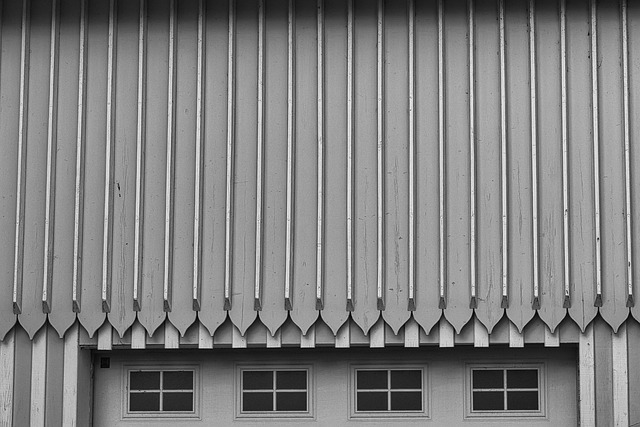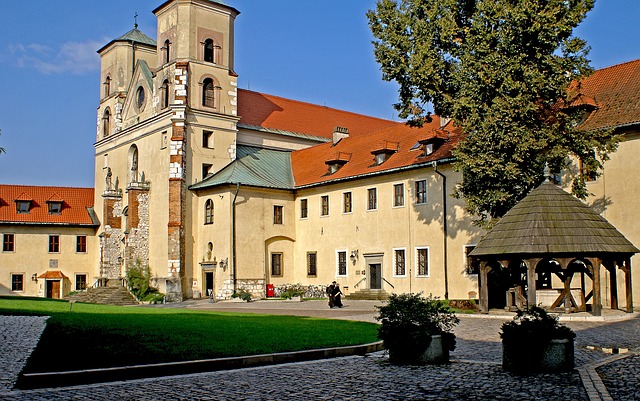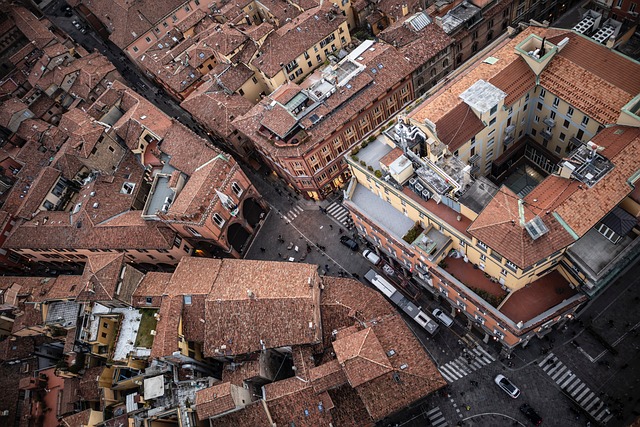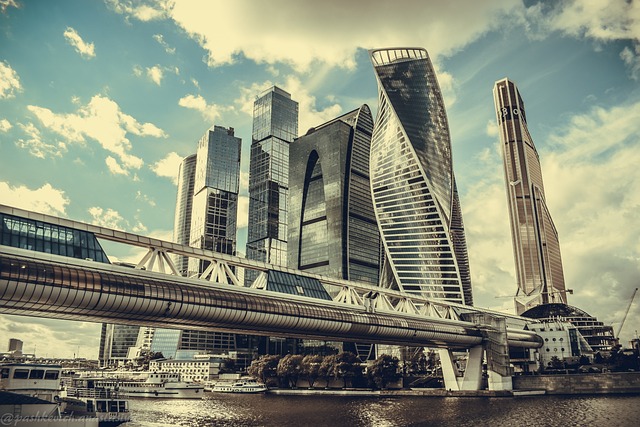Commercial roofing is a specialized field crucial for safeguarding and enhancing business operations, featuring heavier loads, extreme weather resistance, and extended service lives. Choosing the right service involves selecting an industrial roofing team with expertise in diverse roof types (flat, sloped, metal), high-grade materials, modern techniques, and compliance with safety regulations. Advanced materials and technologies revolutionize commercial roofs, offering improved durability, energy efficiency, and aesthetic value. Upgrading your roof enhances operational efficiency, reduces costs, increases property longevity, and boosts curb appeal. Regular maintenance through inspections and cleaning services extends the lifespan of the roofing system, preventing damage and preserving structural value.
In the dynamic landscape of business, a commercial roof is more than just shelter; it’s a strategic asset. Understanding the intricacies of commercial roofing is crucial for any business owner looking to optimize their space and budget. This article explores the diverse world of industrial roofing services, from identifying the right provider to the latest materials and technologies shaping modern commercial roofs. Discover how upgrading your roof can enhance energy efficiency, boost curb appeal, and ensure longevity—all vital components in navigating today’s competitive market.
Understanding Commercial Roofing: An Overview for Businesses

Commercial roofing, a specialized sector within the construction industry, plays a pivotal role in safeguarding and enhancing business operations. This type of roofing caters to the unique needs of industrial and commercial buildings, which often face stringent safety, durability, and maintenance requirements. Unlike residential roofs, commercial rooftops are designed to support heavier loads, withstand extreme weather conditions, and provide extended service lives. They also serve as critical infrastructure, housing essential mechanical systems, ventilation equipment, and solar panels.
Understanding the intricacies of commercial roofing is crucial for businesses. It involves more than just installation or repair; it encompasses a range of services including roof replacement, maintenance plans, leak detection, and energy-efficient retrofits. Professional commercial roofing contractors employ advanced techniques, high-quality materials, and specialized equipment to ensure structural integrity, minimize downtime, and optimize building performance. By prioritizing regular maintenance and investing in robust roofing solutions, businesses can protect their assets, improve operational efficiency, and enhance overall property value.
The Importance of Choosing the Right Industrial Roofing Service

Choosing the right industrial roofing service is paramount for any business owner looking to invest in their commercial property. With a vast array of options available, it’s crucial to select a team that understands the unique challenges and requirements of industrial roofing. A reputable service provider will offer expertise tailored to large-scale projects, ensuring your roof not only withstands the demands of heavy machinery and extensive space but also complies with safety regulations.
The right commercial roofing partner should possess the skills to handle diverse roof types, from metal to flat roofs, and be equipped to provide long-lasting solutions. Their work should reflect a commitment to quality, utilizing high-grade materials and implementing modern installation techniques. Ultimately, selecting a reliable industrial roofing service is an investment in your business’s future, safeguarding against costly repairs and ensuring uninterrupted operations under the protection of a robust, durable roof.
Common Types of Roofs in Commercial Settings

In commercial settings, various types of roofs are commonly found, each with its unique features and benefits tailored to specific structures and functional requirements. Flat roofs remain a popular choice for many businesses due to their simplicity in design and ease of maintenance. These roofs often feature drainage systems that efficiently manage rainwater, making them ideal for areas with moderate climate conditions.
Sloped or pitched roofs are another prevalent option, especially for older industrial buildings. This design offers better insulation against extreme weather conditions, effectively managing snow and ice buildup. The use of commercial roofing materials such as metal, asphalt shingles, or tiles allows for enhanced durability and long-term performance, ensuring the structure remains protected from the elements.
Expertise and Qualifications: What to Look for in a Provider

When selecting an industrial roofing provider, one of the most crucial aspects is ensuring they possess the necessary expertise and qualifications for commercial roofing projects. Look for companies with a proven track record in handling large-scale roofs, as this indicates their capability to manage complex structures. Check their certifications from reputable organizations, which guarantee the quality of their work and materials used.
Additionally, consider their experience in various roof types, such as flat, metal, or corrugated roofing, and their proficiency in installing or repairing systems specific to commercial buildings. Expertise in local building codes and regulations is also essential to ensure compliance and avoid future issues. Opting for a provider with these attributes guarantees a robust and long-lasting solution for your commercial roofing needs.
Materials and Technologies Shaping Modern Commercial Roofs

In the realm of commercial roofing, materials and technologies have evolved significantly, reshaping the way we design and construct rooftops. Today’s modern commercial roofs are no longer merely functional; they’re sophisticated systems engineered for durability, energy efficiency, and aesthetic appeal. Advanced materials like high-performance membranes, metal roofing, and cool roofs are at the forefront of this transformation. These innovative solutions offer enhanced protection against weather extremes, reduce energy consumption through improved insulation, and contribute to a building’s overall sustainability.
Technological advancements have also played a crucial role in enhancing commercial roofing. From drones for detailed inspections to sophisticated computer-aided design (CAD) software for precise planning, these tools streamline the roofing process. Moreover, smart roof systems that incorporate sensors for real-time monitoring of temperature, humidity, and structural integrity are becoming increasingly popular. These innovations ensure optimal performance, predict potential issues before they arise, and ultimately extend the lifespan of commercial roofs.
Benefits of Upgrading Your Business's Roof

Upgrading your business’s roof is a strategic decision that offers numerous advantages. A new commercial roofing system isn’t just an investment in your property; it’s a commitment to enhancing your company’s operational efficiency and longevity. One of the key benefits is improved energy efficiency, as advanced materials can better insulate against temperature extremes, leading to reduced heating and cooling costs.
Additionally, modern commercial roofing solutions are designed for durability and resilience against harsh weather conditions. This increased lifespan means less frequent replacements, saving you money in the long run. Furthermore, an updated roof can significantly boost your business’s curb appeal, potentially attracting more customers and clients. It’s a visible sign of professionalism and commitment to quality that can strengthen your brand image.
Maintenance and Longevity: Ensuring Your Commercial Roof Stands the Test of Time

Regular maintenance is key to extending the lifespan of your commercial roofing system, ensuring it stands strong against the elements for years to come. At its core, routine inspections play a pivotal role in identifying potential issues early on—from minor leaks to structural weaknesses—allowing for prompt repairs and preventing cascading damage. Moreover, professional cleaning services remove debris buildup, ensure proper drainage, and safeguard against moisture-related problems that can compromise the integrity of your roof.
Investing in regular maintenance also offers cost-effectiveness in the long run. By addressing problems before they escalate, you can avoid costly emergency repairs or premature rooftop replacements. This proactive approach not only preserves the structural value of your property but also maintains the overall aesthetics and efficiency of your commercial roofing system.
